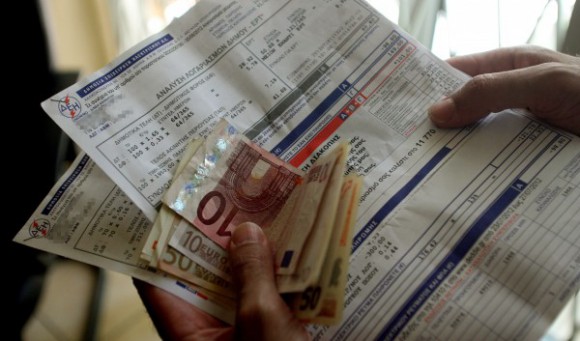Public Service Compensation (YKO) surcharges included on professional and household electricity bills risk being considered a form of illegal state aid if a new plan detailing how these surcharges are distributed is not submitted to the European Commission’s Directorate General for Competition, it has warned.
Last summer, the European Commission issued a guideline concerning state aid for the environment and energy sectors from 2014 to 2020, calling all state members to submit detailed plans, including their Public Service Compensation policies.
The European Commission recognizes Public Service Compensation amounts covering up to a certain level. Any excess amounts charged risk being considered illegal state aid.
Greece has not made any progress on the European Commission’s requests included in the guideline. The European Commission, in a letter to the Greek government, has raised questions as to how the Public Service Compensation surcharges are distributed, and also, whether any action has been taken that may lead to their reduction. For example, the European Commission is persistingly enquiring about the lack of progress of the interconnection projects, to link the islands with the mainland grid and subsequently drastically reduce amounts curently required to fund electricity production on the islands, performed at local high-cost petrol-fueled power stations. The Public Service Compensation surcharges cover these production costs.
Energypress sources said the Greek government has not offered any responses to the European Commission’s enquiries.
As for PPC, the main power utility, it is having major trouble collecting overdue Public Service Compensation amounts included on bills between 2012 and 2014, estimated at about 450 million euros, which has added to the corporation’s cash-flow problem.
This is making difficult government and PPC intentions to lower electricity tariffs on bills as a result of lower production costs at the power utility prompted by the drop in oil and natural gas prices.
Up until last year, Public Service Compensation amounts were determined by RAE, the Regulatory Authority for Energy, and followed up by a ministerial decision to impose the amount. However, following a decision by the Council of State, Greece’s Greece’s supreme administrative court, RAE now determines the amount and the energy ministry then submits an amendment to Parliament.
Last July, RAE had set the required Public Service Compensation amount at 811 million euros for 2012 and 819 million euros for 2013. The preceding amount, still being collected, was 670 million euros, meaning that an additional amount totaling 290 million euros emerged for 2012 and 2013.
The Public Service Compensation to be set for 2015 is expected to be less than 670 million euros as a result of the drastic drop in oil prices since last summer.
At present, consumers are charged 6.99 euros per MWh for consumption up to 1.5 MWh for their Public Service Compensation contributions, 15.7 euros per MGh for consumption between 1.6 and 2 MW, 39.87 euros per MWh for consumption between 2 and 3 MW, and 44.88 euros per MWh for consumption over 3 MW.





